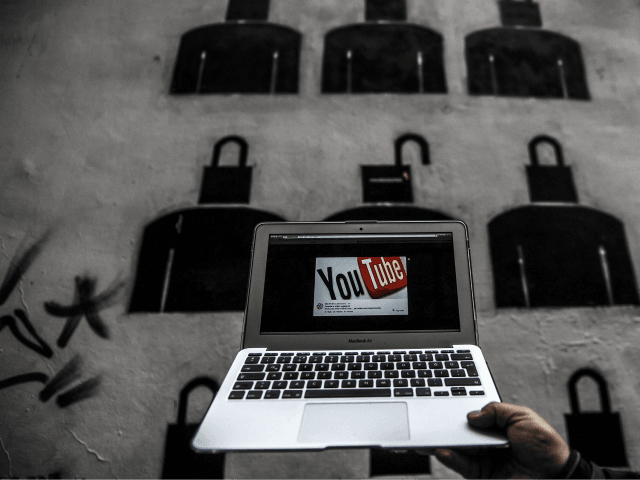YouTube is considering removing or limiting its users’ ability to use the “dislike” button to indicate their distaste for content after one of the platform’s own official videos — the infamous “Rewind 2018” annual recap — became the most disliked YouTube video in history.
The director of project management at YouTube, Tom Leung, revealed in a recent video that changes to the dislike button were being discussed at the company.
In the video, Leung acknowledged that removing dislikes altogether would be “extreme” and not “democratic,” but also admitted that it was one of the options on the table.
Other options discussed by Leung include requiring users to give specific reasons for disliking a video. Leung said that such a feature might “give users pause” before disliking “instead of just doing it impulsively.”
The dislike button has evolved into a popular way for ordinary YouTube users to express their disapproval with progressive propaganda. The trailer for the all-female Ghostubusters reboot, a box-office bomb and progressive cause celebre, became the most disliked movie trailer on YouTube with over 600,000 dislikes. More recently, Gillette received 1.3 million dislikes on its controversial ad about “toxic masculinity,” widely pilloried as sexist against men.
All of those numbers pale in comparison to YouTube’s “Rewind 2018,” a video released by the platform at the end of last year. Meant to highlight the year’s most viral moments, the video was sharply criticized for excluding top YouTube stars in favor of elite-approved old media celebrities like Will Smith and John Oliver, along with a smattering of uncontroversial yet obscure YouTubers.
With 15 million dislikes, “Rewind 2018” is the most disliked video in YouTube’s history. It even displaced Justin Bieber’s “Baby,” which was the most disliked video on the platform for nearly nine years.
YouTube’s most-subscribed star, PewDiePie, known for his opposition to political correctness, was excluded from “Rewind 2018.” In response, he published an alternative Rewind, titled “YouTube Rewind 2018 But It’s Actually Good.” The video featured numerous viral moments that didn’t appear in YouTube’s official video, including Logan Paul’s infamous Japanese suicide forest video and Kanye West’s Oval Office meeting with President Trump.
It is currently the most-liked non-music video on YouTube, with 7.6 million likes.
It’s no surprise that YouTube is considering doing away with the dislike button. It’s part of a wider trend that could be described as a war on popular feedback. Mechanisms for the expression of popular opinion, from dislike buttons and comment sections to the Brexit referendum and the election of Donald Trump have all come under attack from elites over the past two years.
Elections have been delegitimatized, with elites accusing them of being the results of foreign manipulation. Open communication platforms have been recast by the media as breeding grounds for hatred. The same media is busy repeating YouTube’s framing of dislikes as a problem of “mobs,” and praising YouTube for deciding to “fix” the feature.
The same tech journalists also failed to cover Breitbart News’ scoop last month, which revealed that the platform manipulates search results for politically sensitive search terms, including “abortion” and “David Hogg.” The platform has intervened in over 2,000 search terms, adjusting search results so that videos from establishment news sources rise to the top. One employee described the manipulation of search results for “abortion” as a “smoking gun” that proved YouTube and its parent company Google engaged in political censorship.
YouTube appears to be increasingly out of step with the values of its own users. The platform’s CEO, Susan Wojcicki, is one of the most progressive executives in Silicon Valley, someone who believes there can be “too much freedom of speech”, and who personally joined the chorus of SJW outrage at Google demanding that viewpoint diversity advocate James Damore be fired in 2017.
And yet, it is critics of progressivism who have won the support of YouTube’s audience. PewDiePie, the most popular YouTuber on the platform, is a politically incorrect comedian who has criticized left-wing propaganda like the bogus “gender pay gap.”
When YouTube’s ordinary users are allowed to express their preferences, they unambiguously signal their opposition to the progressive value-systems of the platform’s executives. Little wonder those executives want to put a stop to it.
Allum Bokhari is the senior technology correspondent at Breitbart News. You can follow him on Twitter, Gab.ai and add him on Facebook. Email tips and suggestions to allumbokhari@protonmail.com.

COMMENTS
Please let us know if you're having issues with commenting.